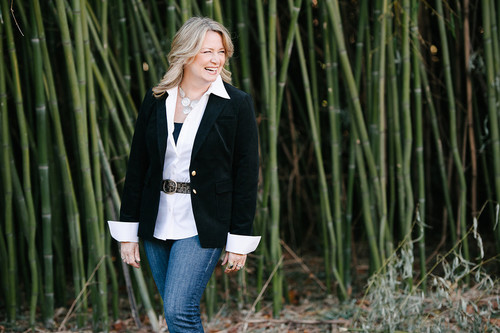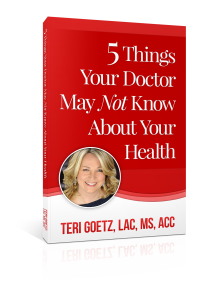DR. TERI GOETZ
Find the Cause. Treat the Root. Heal Yourself.
Find the Cause. Treat the Root. Heal Yourself.
Finding Opportunity Between Negative Thoughts
There’s a moment when negative thoughts arise in your head, unbidden. In that moment, you need to decide how you are going to think about a given situation or person. You know what I’m talking about. It’s that moment where you feel the urge to indulge in a negative thought or say a negative comment, just as you would to scratch an itchy scab. You don’t really want to go there, but it feels kind of good to indulge that kind of thinking.
I’m not quite sure why this is, to be honest. It’s part plain comfort in continuing to think as you always have. It’s part wanting someone to save you or comfort you — even if the thought goes no further than your own head. It’s part confirmation that the way you do things IS right, dammit!
The “why” doesn’t necessarily matter. All that matters is that you just stop it! Interrupt the flow of thoughts the moment you feel bad. The moment you are at the decision point about how to react to something, you can choose to behave or think differently. No one is holding a gun to your head, of course, but you.
But first, you have to decide that what you want to stop it.
In order to figure that out, I have a couple of simple questions:
- Do you want to continue to feel negatively about certain situations?
- What do you get out of feeling negatively about these situations? Does it feed some part of you that wants to keep feeling bad?
- What would it feel like if you took control, and simply said, “Enough! I’m choosing to live from a place of positivity and pleasure.”
See, we are always able to choose how we feel about something. People do not “make you feel” a certain way. (My kids learned early on that saying something like, “Susie made me feel guilty” would provoke a long discussion about out how they chose to allow Susie to make them feel guilty.)
I’ll say it again: You choose how to feel — about everything. If someone is annoying or hurting you, are they choosing to annoy you? To hurt you? Maybe. There’s no way to really know unless you ask them. (And honestly, unless you can do it from a truly neutral stance, why bother?) If they are, is feeling angry or bad about it going to change anything? Are they oblivious? Maybe. Are they acting out of their own pain? More than likely.
Empathy is the best medicine for that situation. This requires the combination of making the decision NOT to feel bad about something and the awareness that people truly do the best they can, even if it means hurting you.
The Buddhists call it loving-kindness. But, it’s all the same thing. If you think of it this way, that we are all made from the same original cells, you might see that we are all in this together. When you get angry at someone else, it is like being angry at yourself. (It’s also attracting more to be angry at!) Even if you don’t buy into that, realize that if you feel bad, how you feel is your choice. And, you’re not going to stop feeling lousy until you choose to feel better.
When you choose to feel good, feel pleasure, you will opt out of the bad feeling trap. When you identify pleasure with the decision not to feel bad, you are more likely to choose feeling good!
So, learn to identify the opportunities in between your thoughts. A simple way to do that is to either become immediately aware that feelings of gloom, anger, pessimism or criticism are signals that you are not in harmony with your inner being. These are moments of choice.
Once you realize this moment, you will decide, hopefully, to look for the opportunity, or to reframe what is going on so that you stay in a higher vibration mode. This is not Pollyanna stuff — it’s simply energetics. Like attracts like. You can even ask yourself, “Do I want more of this?” If not, then change your reaction, and create what you do want.
Just remember, you can’t control anyone’s behavior, but you can control your reaction to it.
And one last thing. If you put a little energy into what is positive and good about a situation and/or person, you might find that things turn around pretty quickly.
Photo – nightskynation


